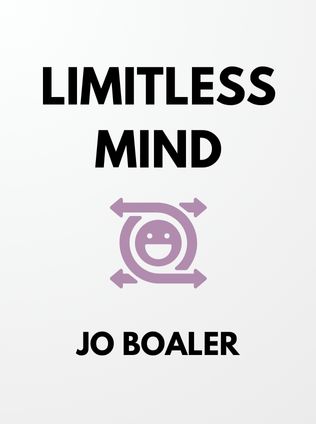
Limitless Mind
Learn, Lead, and Live Without Barriers
By Jo Boaler
Published 09/2019
About the Author
Jo Boaler, a professor of mathematics education at Stanford University, has made a significant impact on the field of education through her innovative approaches to teaching and learning. Boaler's work is driven by a deep commitment to educational reform, particularly in mathematics, where she has sought to dismantle the fear and anxiety that often accompany the subject. As a co-founder of youcubed.org, Boaler has provided a valuable resource for educators, offering access to tools and research that enable them to transform their teaching practices. Her mission is to empower students and teachers alike by challenging the outdated beliefs that limit our understanding of learning and intelligence. Boaler's research and advocacy have positioned her as a leading voice in the movement to create more equitable and effective educational systems.
Main Idea
In Limitless Mind, published in 2019, Jo Boaler presents a powerful argument against the traditional beliefs that have long governed our understanding of learning. Drawing on the latest findings in neuroscience and psychology, Boaler reveals that the brain is not a static organ but rather a dynamic, ever-changing structure capable of remarkable growth and adaptation. She challenges the notion that intelligence is a fixed trait, predetermined by genetics or early childhood experiences. Instead, Boaler argues that our abilities are shaped by our attitudes, efforts, and the opportunities we are given to learn and grow. The central message of Limitless Mind is one of hope and empowerment: with the right mindset and approach, anyone can expand their intellectual capacities and achieve their full potential.
Table of Contents
- The Science of Learning
- Learn Slowly, Not Quickly
- Attitude, Not Aptitude
- Different Approaches
- Applying the Science
- Never Stop Learning
The Science of Learning
Boaler begins her exploration by challenging the traditional view that intelligence is a fixed and unchangeable trait. For many years, educators and psychologists believed that individuals were born with a certain level of intelligence, which remained largely static throughout their lives. This belief led to the development of an educational system that categorizes students based on perceived ability, often limiting their potential and reinforcing self-fulfilling prophecies of failure or success.
However, recent advances in neuroscience have radically altered our understanding of the brain and its capacity for growth. The concept of neuroplasticity, which refers to the brain's ability to reorganize itself by forming new neural connections, is at the heart of Boaler's argument. She explains that our brains are not fixed but are constantly changing in response to new experiences, learning, and practice. This means that our capacity to learn is not predetermined by our genetics but is instead shaped by our environment, our experiences, and our willingness to engage in challenging tasks.
Boaler emphasizes that the act of learning itself is a process of growth and change. "Any time you learn a new idea or practice a skill, your brain forms new neural connections, strengthens them with repeated use, and creates new links between preexisting neural pathways," she writes. This dynamic process of forming and strengthening neural connections means that we are all capable of continuous intellectual development, regardless of our starting point.
The Power of Struggle
One of the most important insights from neuroscience is the recognition that struggle and difficulty are not signs of failure but are essential components of the learning process. Boaler explains that when we struggle with a problem, our brains are more active, creating and strengthening the neural connections that lead to deeper understanding and long-term retention. This is in stark contrast to the traditional educational approach, which often penalizes mistakes and discourages students from engaging in challenging tasks.
Sign up for FREE and get access to 1,400+ books summaries.
You May Also Like
The Subtle Art of Not Giving a F*ck
A Counterintuitive Approach to Living a Good Life
By Mark MansonRich Dad Poor Dad
What the Rich Teach Their Kids About Money - That the Poor and Middle Class Do Not!
By Robert T. KiyosakiHow To Win Friends and Influence People
The All-Time Classic Manual Of People Skills
By Dale CarnegieFreakonomics
A Rogue Economist Explores the Hidden Side of Everything
By Steven D. Levitt and Stephen J. DubnerI Am Malala
The Story of the Girl Who Stood Up for Education and Was Shot by the Taliban
By Malala Yousafzai



















